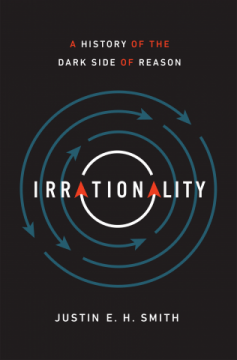From the Princeton University Press blog:
 What led you to write a book about irrationality?
What led you to write a book about irrationality?
I had long supposed that human thought and behavior have been a relatively static thing for the past 200,000 years, that there is a fairly narrow range of species-specific responses to the world around us, and that these are not going to fundamentally change until or unless we become a different sort of animal. The past few years have tested this long-held assumption. I came to feel that the world was going mad, that many people, including many I know and love, were now speaking and reasoning as if they had passed through to the other side of a looking-glass, or had come back from the other side, and were now communicating in a frenetic glossolalia or in pretend robot-voices. And it terrified me. I began to wonder whether this is not a normal process of disillusionment one can expect to go through at a certain stage of life, when the scales fall from our eyes and we realize that human beings have been bonkers all along and that society is just a flimsy tarp that camouflages this madness, or whether, instead, there really is something important about the present moment that is bringing the irrationality out, like methane from below the ice of the melting tundra. It seemed to me the best way to answer this question would be to investigate it historically, with a maximally sweeping view, attempting so to speak a genealogy of irrationality, one which reaches back into the past, but always with an eye to understanding the present.
More here.
